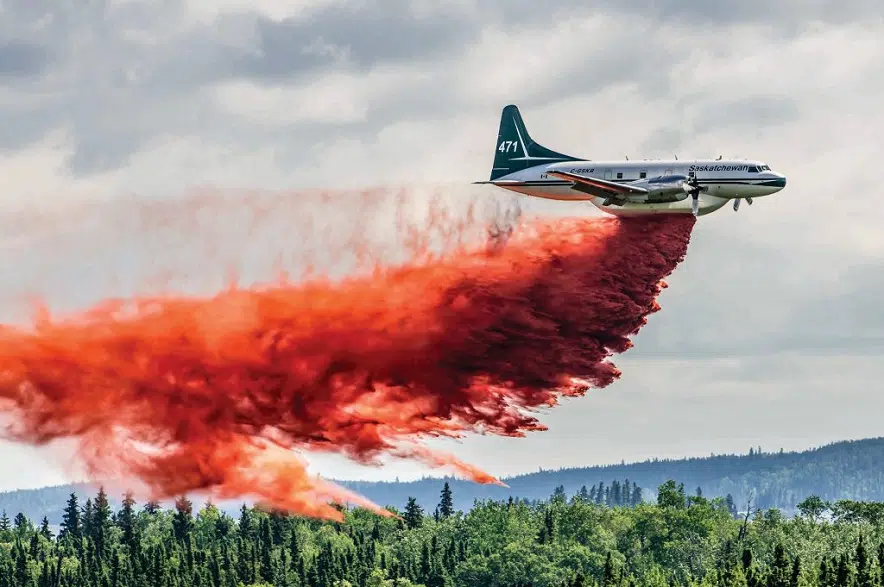Saskatchewan has already experienced twice its normal number of wildfires for this time of year.
So far in 2023, 169 wildfires have burned around the province.
As of 5 p.m. on Wednesday, the Saskatchewan Public Safety Agency (SPSA) reported 24 wildfires were active, 10 were undergoing assessment, eight were contained, five were not contained and one was classified as protecting property.
The majority of the fires are human caused, explained Bryan Chartrand, executive director of land operations for the SPSA.
While the forecast ahead of wildfire season did signal a hot and dry season with above-average fire activity, Chartrand noted that the province likely wasn’t expecting numbers to be as high as they are.
Chartrand said conditions at the moment mean fires can take off and get out of control at a moment’s notice, which is why a provincial fire ban is in place and the Saskatchewan is considered to be at an extremely high risk for fires.
According to Marlo Pritchard, SPSA’s president, provincial command has been activated to help respond to the wildfires burning in northern Saskatchewan. The Saskatchewan Public Safety Provincial Emergency Operations Centre, which is responsible for acting as a central point to co-ordinate provincial responses, made the activation.
The agency’s expertise in co-ordinating and deploying emergency resources helps span different government ministries and agencies. Those emergency resources include ground crews, heavy equipment, helicopters and air tankers responding to protect Saskatchewan communities, infrastructure and resources.
The SPSA is keeping food and fuel accessible to northern communities by escorting delivery trucks along roads and highways that have been closed because of the fires.
Two travel advisories are in place presently, and Pritchard recommended watching the Highway Hotline for road closures due to smoke and fires.
The agency couldn’t provide a total number of evacuees, but said those being supported by the SPSA number 113 in Lloydminster, 169 in North Battleford and 47 in Regina. The evacuees come from the communities of Dillon, Saint George’s Hill, Michel Village, English River First Nation, Patuanak and Buffalo Narrows.
The evacuations are being handled in partnership with the Meadow Lake Tribal Council. There is currently no expected date of return for individuals who have been forced to leave their homes.
Chartrand said further evacuations could certainly be on the horizon, though he said he hopes no more communities are required to evacuate because of wildfires.
Most of Saskatchewan is presently under special air quality statements from Environment Canada, advising that smoke from wildfires is heavy in the air and could harm people who are outside for long periods of time.
Mail service has been suspended in some of the affected communities. Because of the wildfires and evacuations, red delivery alerts have been issued by Canada Post for the communities of Beauval, Clearwater, Île-à-la-Crosse, Island Lake and Turnor River.
Daily technical briefings will now be provided to the media from the provincial government as the situation involving the fires continues to evolve.
Residents are being encouraged to take extra precautions to avoid starting fires, even if their area is not under a fire ban, by not parking on dry grass and limiting ATV use.
A toll-free line was activated for the public on Wednesday for those who have been displaced or have questions about ongoing wildfire management. The line is staffed from 8 a.m. to 8 p.m., seven days a week, and can be reached by dialing 1-855-559-5502.







